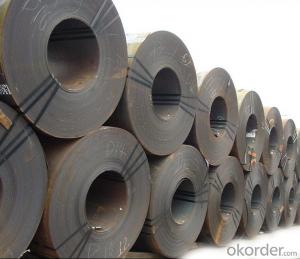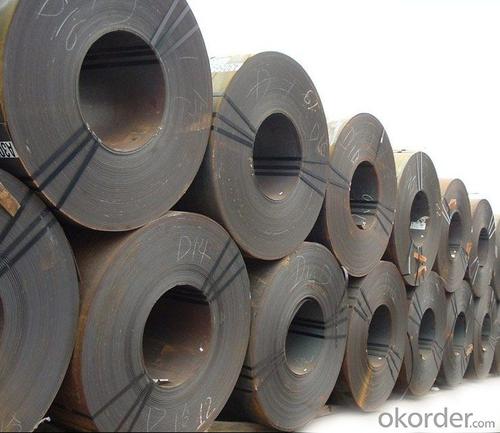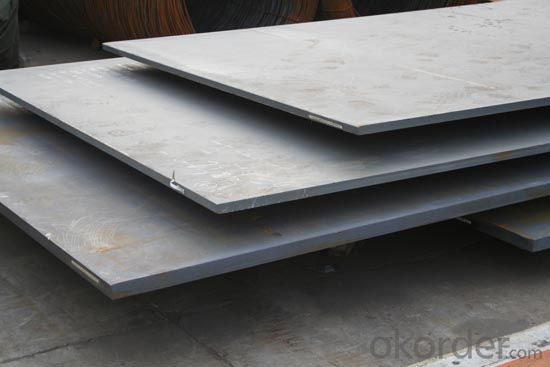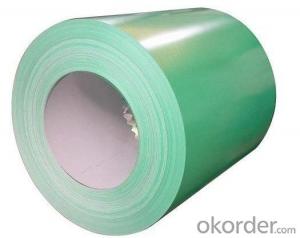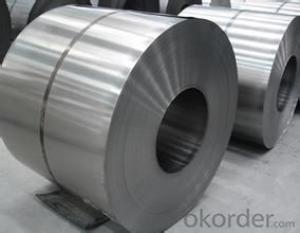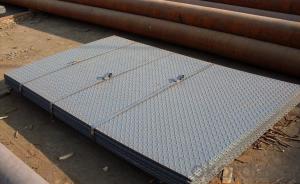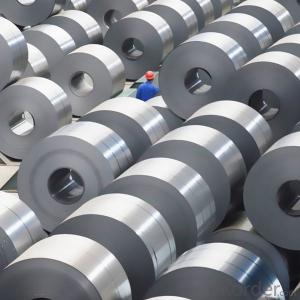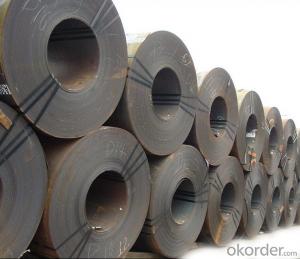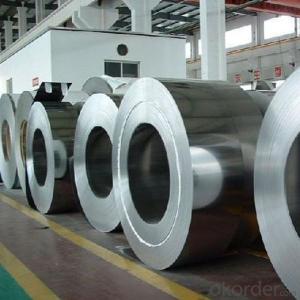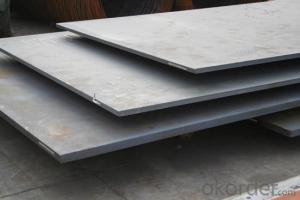Hot Rolled Steel Coils/Sheets from China, A36, ST37-2
- Loading Port:
- Tianjin
- Payment Terms:
- TT OR LC
- Min Order Qty:
- 1 m.t.
- Supply Capability:
- 200000 m.t./month
OKorder Service Pledge
OKorder Financial Service
You Might Also Like
Product: | Hot Rolled Steel Coils/Sheets |
Material: | Q195,Q235,A36,SS400,S235JR,Q345,ST37-2, CCSB etc |
Standard : | JIS G3002 GB/T251B |
Technique: | hot rolled |
Thickness | 1.2mm to 200mm |
Tolerance of thickness: | :+/-0.03mm |
Width: | 750mm-2000mm |
Tolerance of width: | :+/-5.00mm (aiming to +/-2.00mm) |
Normal width: | 914mm, 1000mm, 1200mm, 1219mm, 1250mm,1500mm |
Length: | According to requirement |
Coil ID: | 508mm-610mm |
Coil Weight: | 10-25 Metric Tons |
Surface: | Black, Chromate, fingerprint resistant treatment, slight oiled or non-oiled, dry |
Port of Loading: | Tianjin/Shanghai port |
Packaging Details: | Standard export packing or according to the clients required |
Delivery Time | Within 30 days after received 30% deposit or workable L/C |
Payment Terms: | L/C,T/T |
- Q: What are the common coil transportation methods?
- The common coil transportation methods include trucking, railway transportation, and shipping.
- Q: How are steel coils used in the manufacturing of pipes?
- Steel coils are used in the manufacturing of pipes by being uncoiled, flattened, and then formed into a cylindrical shape through a process called pipe welding. The steel coils provide the necessary raw material for the production of pipes, ensuring strength, durability, and structural integrity.
- Q: How do you calculate the weight of a steel coil?
- To calculate the weight of a steel coil, you need to know its dimensions and the specific gravity of the steel. The formula to calculate the weight is as follows: Weight of steel coil = Length of coil (in meters) x Width of coil (in meters) x Thickness of coil (in meters) x Specific gravity of steel First, measure the length, width, and thickness of the steel coil in meters. Ensure that all measurements are in the same unit for accurate calculations. Next, determine the specific gravity of the steel. Specific gravity is the ratio of the density of a substance compared to the density of water. For steel, the specific gravity is typically around 7.8. Multiply the length, width, and thickness of the coil together. This will give you the volume of the steel coil in cubic meters. Finally, multiply the volume of the coil by the specific gravity of steel to obtain the weight of the steel coil in kilograms (kg). Keep in mind that this calculation provides the weight of the steel coil without considering any additional factors such as the core material or any other components included in the coil.
- Q: I am using mild steel wire (very thin and bendable) for an art project, and would like to know if using a soldering torch is effective enough to get the job done. Or do I have to use a butane torch to heat the metal?BTW, is it better to use soft or hard solder?
- You can indeed by using the correct flux as normal soldering fluxes as used by plumbers will not work. I believe to solder steel it requires an acid flux which will corrode copper so when its done make sure its well cleaned afterwards and if possible apply a corrosion proofer afterwards ie paint or even petroleum jelly. I am curious as to why you would want to solder wire to a steel nail.
- Q: How are steel coils protected against bending and deformation?
- Steel coils are protected against bending and deformation through the use of robust packaging materials, such as wooden crates or steel strapping, which provide structural support and prevent any external pressure from causing damage. Additionally, steel coils may be stored and transported in specialized racks or containers designed to evenly distribute weight and minimize the risk of bending or deformation.
- Q: How are steel coils used in the manufacturing of body panels?
- Steel coils are used in the manufacturing of body panels by being processed and shaped into flat sheets or strips. These sheets or strips are then further formed, cut, and welded to create various body panels, such as doors, hoods, and fenders, which are essential components of vehicles.
- Q: What are the main challenges in handling and processing steel coils?
- The main challenges in handling and processing steel coils include their large size and weight, which can make transportation and maneuverability difficult. Additionally, the edges of steel coils can be sharp and pose safety risks. Coils also need to be stored in a manner that prevents damage and corrosion. Lastly, processing steel coils requires specialized equipment and techniques to ensure accurate cutting, shaping, and forming, which can be costly and time-consuming.
- Q: Hi all.I'm working on a project which requires about 3 steel pipes at 25mm in diametre and about a foot each in length.The qualities I need with the steel is that:1. I need it to be easy enough to weld together2. I need to be able to drill holes through them with a basic drill (I could buy different bits, that's fine)3. I need the steel to be able to take short intense repeated bursts of strain through said holes4. The lighter the steel the better5. Could I please have a ballpark figure for price. I can't imagine such a small amount of steel would cost too muchThank you in advance for your replyRegardsSean
- Sprinkler pipe or black pipe. Designed for fire suppression systems, it is often used for coping on skateboard and BMX fixtures. Not sure of the price, you could probably pick up some scrap from a plumbing supply house or a sprinkler installer. Can't imagine the cost to be more than $10
- Q: How are steel coils used in the manufacturing of safety systems?
- Steel coils are commonly used in the manufacturing of safety systems such as airbags and seat belts. The steel coils are formed into springs which provide the necessary tension and force to ensure the proper functioning of these safety devices. The coils are carefully designed and integrated into the system to enhance its performance and reliability, ultimately helping to protect occupants in the event of a collision.
- Q: I need to say how a bottle opener is made, would it be made from steel and can this be coloured? How?
- Steel can be plated(Chrome),Blackened(Black Oxide),Powder coated(color of your choose).All of this is done to prevent rust.All of these aforementioned processes can be worn off through being used.I suggest polished Stainless steel.
Send your message to us
Hot Rolled Steel Coils/Sheets from China, A36, ST37-2
- Loading Port:
- Tianjin
- Payment Terms:
- TT OR LC
- Min Order Qty:
- 1 m.t.
- Supply Capability:
- 200000 m.t./month
OKorder Service Pledge
OKorder Financial Service
Similar products
Hot products
Hot Searches
Related keywords
